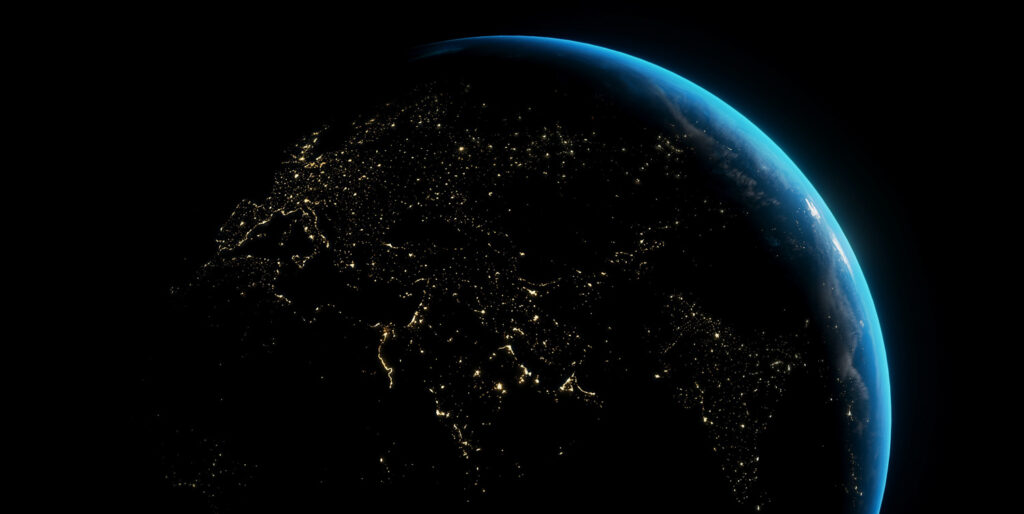
Estimated reading time: 5 minutes
We may be familiar with the idea of karma on a personal level, but what about in the context of a larger community? What then becomes our objective?
—
Karma is the eternal law of cause and effect. It teaches that for every action you take, there is an eventual and inescapable effect to that action. Karma is generated with every thought, word, act, and deed. It can reach into any aspect of life. You can have karma related to family, money, health, and relationships. Karma works on a collective level, too. Collective karma means a group of people sharing the same karma. There is the collective karma of race, of nations, and there is the collective karma of the world.
Collective karma is part of life because this is how we learn to work together in an organized and productive way. It’s people working together who produce civilizations with their various cultures and societies. All the great achievements of humanity are the result of cooperative efforts. Some of our brightest moments have occurred on a collective level and some of our darkest as well.
The laws of karma work the same way for groups as they do for individuals. If a group initiates a destructive action, it will pay the price. If it generates a positive action, it will bear the fruit. The difference is the group is its own self-sustaining entity. Individuals add or subtract to the welfare of the organization, but it is the group itself that bears the karmic mark. In other words, if a leader of a nation initiates an action that is detrimental to the country, the country as a whole will bear the burden of that leader’s actions.
A great irony of collective karma, especially when we speak of nations, is that the full effects are often felt generations later by people who had little or no connection to the people who started the karma to begin with!
This has caused confusion as to how God works out divine justice. On an individual level, if you create bad karma, it comes back to you, not to those around you. But if the government of a nation initiates a destructive act, the country will often not feel the karmic effects until later generations.
If there’s one thing that the laws of karma demonstrate, it is that there’s alwaysjustice, even in what too often appears to be an unjust world. There are many times when we are caught up in events that are beyond our control. Governments enact laws we must abide, even when we do not agree with them. Companies make decisions that can make work life for employees difficult. Even with families, parents may make decisions that work against the welfare of their children, yet the children have little choice but to go along. In all these scenarios, how does karma work when the welfare of many people is involved?
Karma is a harmonizing law. It’s trying to keep life in balance. If something goes out of balance, the karmic condition is the opportunity to turn things right-side up.
So when faced with karma, you want to ask, “What is the lesson?”
Before blaming others and society, first examine your motivations and discontents. Take responsibility for your successes and failures without blaming others. Once you understand your own motives, your search for truth becomes easier because you are more objective.
In dealing with collective karma, do your best to set a good example. Regardless of what the group is doing, live up to the best of your own moral integrity. Be active in your community. The decisions that affect cultures and nations affect us all, and we have a part to play in that process. No one is insignificant or unimportant when it comes to collective karma. There will be times when you will see inequities and injustice. Do what you can to rectify these situations, but don’t jump to conclusions. Do your best to understand the situation from different points of view. It’s too easy to get caught up in the passion of the moment. Understand that sometimes there are greater forces at work. If you can change things for the better, do so. If not, leave things in the hands of the Divine.
In contributing to positive collective karma, the ancient Athenian oath said it best:
We will never bring disgrace on this our City by an act of dishonesty or cowardice.
We will fight for the ideals and Sacred Things of the City both alone and with many.
We will revere and obey the City’s laws, and will do our best to incite a like reverence and respect in those above us who are prone to annul them or set them at naught.
We will strive increasingly to quicken the public’s sense of civic duty.
Thus in all these ways we will transmit this City, not only not less, but greater and more beautiful than it was transmitted to us.
Ultimately, karmic conditions are teachers to make us better as people and to make civilization better.
When karmic trials show up, it is more important than ever to hold strong to your highest ideals. Refuse to give into despair or discouragement. Remember that you are playing a part in the collective good. Your participation matters. You are already spiritually equipped to reach your potential and play your part in society. But you must exercise and develop that potential. Despite challenging times, civilization is progressing. There are brighter days ahead for us all and for our children.
You may also enjoy reading Emergence of a New World Order by Barbara Ann Briggs.
